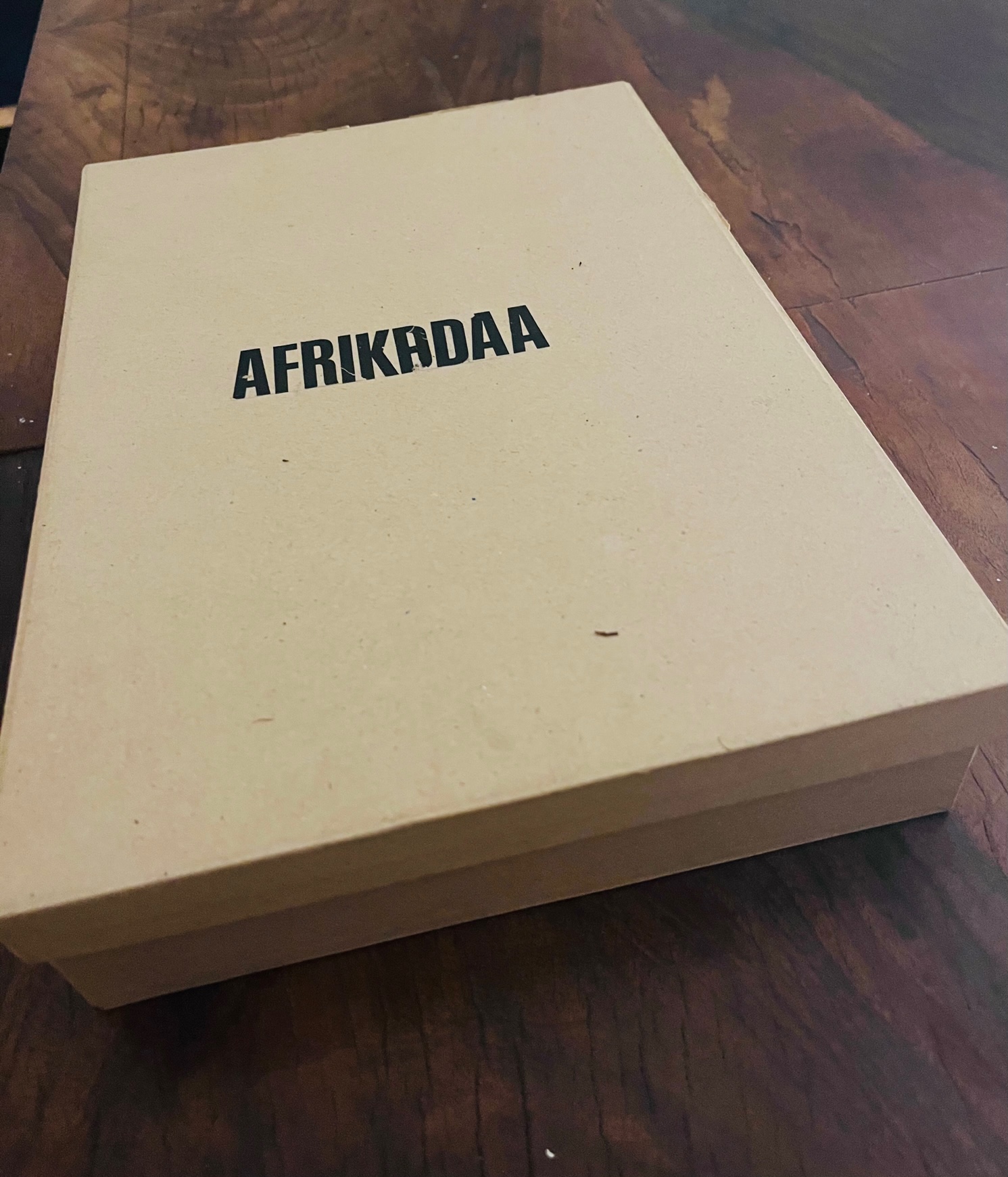AFRIKADAA/african art book fair
AFRIKADAA is a WE in motion, a publishing house, a platform for the contemporary arts producing and thinking about Africa and the diasporas from a decolonial perspective.
AFRIKADAA is also an art magazine that brings another perspective to the contemporary art scene by telling the stories and trajectories of artists' communities beyond the boundaries of the market. The magazine is a deterritorialised space where artists and those involved in contemporary creation question aesthetics and ethics in the face of the major challenges of globalisation. AFRIKADAA places contemporary art in a perspective of global reflection that goes beyond geography and cultural policies.
It takes shape in a double movement, both theoretical and practical, in which the space of publication is extended, anchored and deployed in physical, corporeal and artistic spaces, taking into account the multidimensionality of critical production when thought, outside the Western cosmovision, explores the space of radicality in the field of art in relation to political issues.
The Afrikadaa collective is made up of artist-researchers and activists who, through a laboratory, develop experimental artistic practices that resonate with tomorrow's social and political emergencies. The voices expressed through AFRIKADAA today fill a gap between the colonial continuum of local discourse and the practices of resistance. They show that continuing to talk about ‘us’ without ‘we’ is part of a global misunderstanding of post-colonial issues.
AFRIKADAA is an artistic platform that presents itself as a pocket of resistance to practices that legitimize power between territories, ideas and artistic movements. It brings another perspective to the contemporary art scene by telling the stories and trajectories of artist communities across borders. The AFRIKADAA magazine archives artistic practices and the history of contemporary art from the South.
AFRIKADAA produces the African Art Book Fair, the art magazine AFRIKADAA, conferences, exhibitions, training courses and workshops on the history of contemporary African art. It also produces tools for pedagogical deconstruction linked to activism.
AFRIKADAA is also an art magazine that brings another perspective to the contemporary art scene by telling the stories and trajectories of artists' communities beyond the boundaries of the market. The magazine is a deterritorialised space where artists and those involved in contemporary creation question aesthetics and ethics in the face of the major challenges of globalisation. AFRIKADAA places contemporary art in a perspective of global reflection that goes beyond geography and cultural policies.
It takes shape in a double movement, both theoretical and practical, in which the space of publication is extended, anchored and deployed in physical, corporeal and artistic spaces, taking into account the multidimensionality of critical production when thought, outside the Western cosmovision, explores the space of radicality in the field of art in relation to political issues.
The Afrikadaa collective is made up of artist-researchers and activists who, through a laboratory, develop experimental artistic practices that resonate with tomorrow's social and political emergencies. The voices expressed through AFRIKADAA today fill a gap between the colonial continuum of local discourse and the practices of resistance. They show that continuing to talk about ‘us’ without ‘we’ is part of a global misunderstanding of post-colonial issues.
AFRIKADAA is an artistic platform that presents itself as a pocket of resistance to practices that legitimize power between territories, ideas and artistic movements. It brings another perspective to the contemporary art scene by telling the stories and trajectories of artist communities across borders. The AFRIKADAA magazine archives artistic practices and the history of contemporary art from the South.
AFRIKADAA produces the African Art Book Fair, the art magazine AFRIKADAA, conferences, exhibitions, training courses and workshops on the history of contemporary African art. It also produces tools for pedagogical deconstruction linked to activism.
